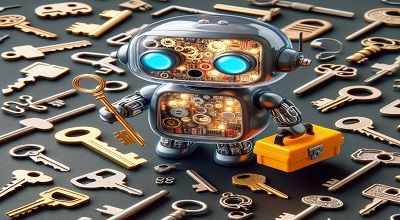Inside Ed
It seems like you’re asking about the concept of what is “inside” a person, specifically, their thoughts, emotions, and personality traits. “Ed” appears to be a placeholder name for a hypothetical individual. Let me provide some examples of what might be “inside Ed”:
- Thoughts: Inside Ed’s mind, there are a multitude of thoughts. These can range from everyday considerations like what to have for breakfast or how to tackle a work project to more profound thoughts about the meaning of life or the state of the world.
- Emotions: Ed experiences a wide array of emotions. For instance, he might feel happiness when spending time with loved ones, frustration when stuck in traffic, sadness when reminiscing about a lost friend, or excitement when planning a vacation.
- Memories: Inside Ed’s mind are memories of his past experiences. These could be childhood memories, memorable vacations, or significant life events. These memories contribute to shaping his identity and how he perceives the world.
- Beliefs and Values: Ed holds certain beliefs and values that guide his decision-making and interactions with others. These could be political beliefs, religious values, or ethical principles that influence his behavior and choices.
- Personality Traits: Ed has a unique personality with traits like introversion or extroversion, openness to new experiences, conscientiousness, agreeableness, and neuroticism. These traits affect how he interacts with the world and others.
- Skills and Talents: Inside Ed, there are various skills and talents he has developed over time. These might include playing a musical instrument, excelling in a particular sport, or being skilled in a specific profession.
More Examples
- Dreams and Aspirations: Ed has dreams and aspirations for his future. These could be career goals, personal achievements, or desires for personal growth and self-improvement.
- Fears and Anxieties: Like everyone, Ed has fears and anxieties about certain aspects of life. These fears can range from fear of failure or rejection to more specific phobias.
- Interests and Hobbies: Inside Ed, there are interests and hobbies that he enjoys. This could include a passion for gardening, a love of reading, or a fascination with astronomy.
- Morals and Ethics: Ed has a sense of right and wrong, which is influenced by his moral and ethical beliefs. These principles guide his behavior and decision-making in various situations.
- Relationships: Ed’s inner world is also filled with relationships with family, friends, and colleagues. These relationships are characterized by varying degrees of closeness, trust, and emotional connection.
- Desires and Ambitions: Ed has desires and ambitions that drive him to pursue certain goals and achievements. These could be related to career success, personal growth, or making a positive impact on the world.
Remember that every individual is unique, and what is “inside” someone can vary greatly from person to person. These examples provide a glimpse into the complex and multifaceted nature of human beings.
Key With Inside Ed
It appears that you’re looking for a key or a way to understand what is “inside Ed” in a more symbolic or abstract sense. If we consider “Ed” as a representation of a person’s inner world or psyche, here’s a symbolic “key” to understanding what might be inside Ed:
- Thoughts and Cognition: This is the intellectual aspect of Ed’s inner world, encompassing his thoughts, ideas, reasoning, and problem-solving abilities.
- Emotions and Feelings: This represents Ed’s emotional state, including his feelings of joy, anger, sadness, love, fear, and more.
- Memories and Experiences: Ed’s past experiences and memories play a crucial role in shaping his identity and influencing his decisions and actions.
- Beliefs and Values: Ed’s core beliefs and values guide his moral compass and influence his choices and behavior.
- Personality Traits: Ed’s personality traits, such as introversion/extroversion, openness, conscientiousness, agreeableness, and neuroticism, contribute to his unique character.
- Skills and Abilities: Ed’s skills and talents represent his competence in various areas, whether it’s a profession, a hobby, or a talent.
More Keys
- Dreams and Goals: Ed’s aspirations and ambitions motivate him to strive for personal and professional achievements.
- Fears and Insecurities: Understanding Ed’s fears and insecurities can shed light on his vulnerabilities and areas where he may need support or personal growth.
- Interests and Passions: Ed’s interests and passions reveal what excites and engages him in life, offering insights into his hobbies and pursuits.
- Morals and Ethics: Ed’s moral and ethical framework shapes his ethical decision-making and judgments about right and wrong.
- Relationships and Connections: Ed’s connections with others, including family, friends, and colleagues, play a significant role in his emotional well-being and social interactions.
- Desires and Motivations: Ed’s desires and motivations drive him to seek fulfillment and happiness in various aspects of life.
This symbolic “key” can help you explore and understand the various facets of a person’s inner world, whether it’s “Ed” or any individual. Keep in mind that the combination of these elements is what makes each person unique and complex.
